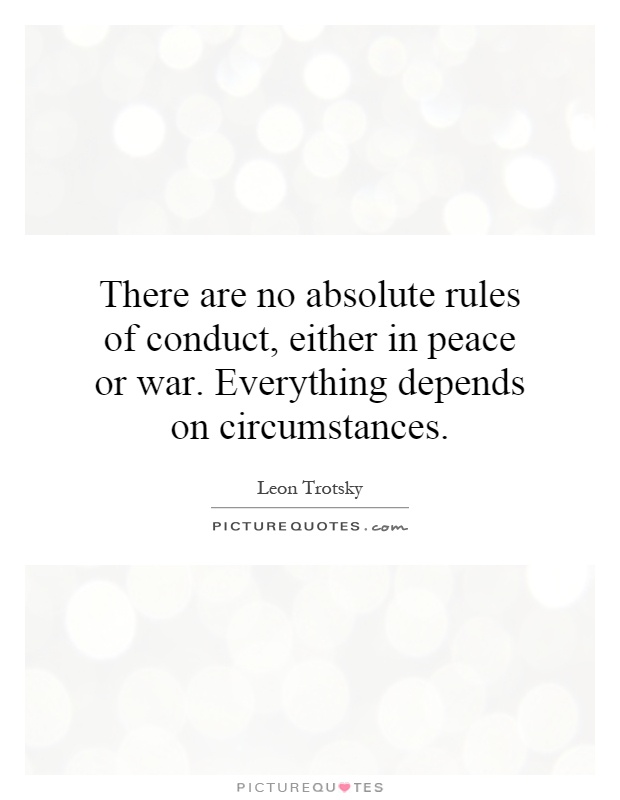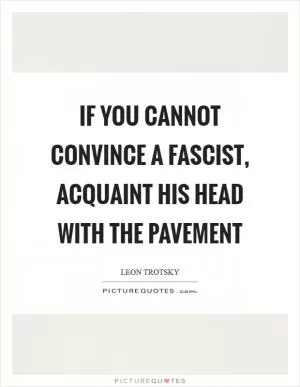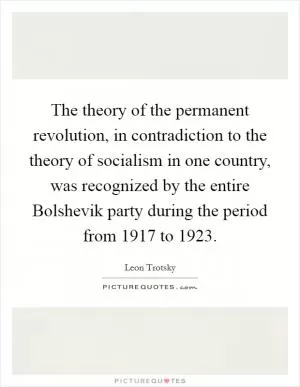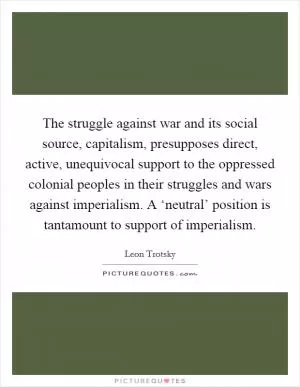There are no absolute rules of conduct, either in peace or war. Everything depends on circumstances

There are no absolute rules of conduct, either in peace or war. Everything depends on circumstances
Leon Trotsky, a key figure in the Russian Revolution and a prominent Marxist theorist, believed in the idea that there are no absolute rules of conduct, either in peace or war. He understood that the circumstances of a situation greatly influence the actions that individuals or groups take. Trotsky's views on this matter were shaped by his experiences as a revolutionary leader and his observations of the complexities of human behavior.In the context of war, Trotsky's belief that everything depends on circumstances is particularly relevant. He recognized that in times of conflict, individuals and nations are often forced to make difficult decisions that may go against traditional moral or ethical standards. For Trotsky, the ultimate goal of war was to achieve victory, and this goal could justify actions that might be considered unethical or immoral in peacetime. He believed that in war, the ends often justify the means, and that the circumstances of the conflict must be taken into account when determining the appropriate course of action.
Trotsky's views on conduct in war were influenced by his experiences as a military leader during the Russian Civil War. He understood the brutal realities of warfare and the difficult choices that commanders and soldiers must make in order to achieve victory. Trotsky believed that in war, there are no absolute rules of conduct, and that individuals must be willing to adapt to the circumstances in order to succeed.












 Friendship Quotes
Friendship Quotes Love Quotes
Love Quotes Life Quotes
Life Quotes Funny Quotes
Funny Quotes Motivational Quotes
Motivational Quotes Inspirational Quotes
Inspirational Quotes